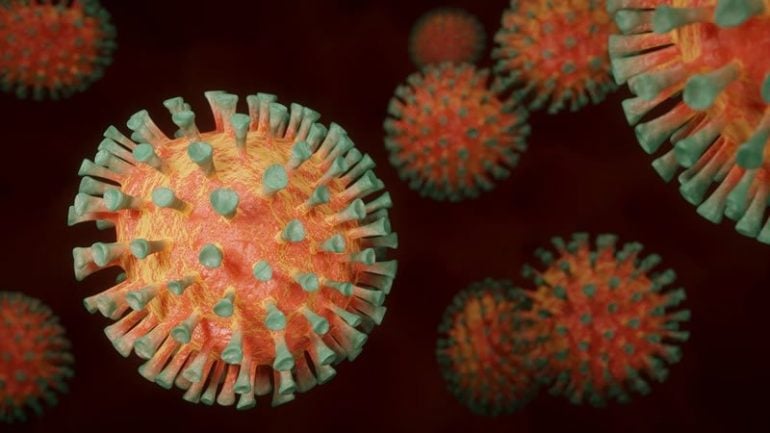Summary: An aerosolized version of tissue plasminogen activator (tPA), a clot-busing drug commonly used for the treatment of stroke patients, could target blood clots that form as a result of severe coronavirus infection.
Source: University of Aberdeen
A drug commonly used to treat patients suffering from strokes could be repurposed to treat patients with COVID-19, according to researchers at the University of Aberdeen.
The paper by Dr Claire Whyte and Dr Nicola Mutch from the University’s Cardiovascular & Diabetes Centre and Honorary Research Fellow, Dr Gael Morrow, has been published in the Journal of Thrombosis & Haemostasis, and was funded in part by grants from the British Heart Foundation.
They suggest an aerosol version of a clot-busting drug called tissue plasminogen activator (tPA) could be a ‘pragmatic’ way to tackle lung injury complications caused by the virus.
Similar diseases to COVID-19, including the common flu, can create inflammation which results in deposits of a protein called fibrin. Fibrin is the scaffold that blood clots are made of.
This build up of fibrin takes up space and reduces the amount of oxygen the lung can take in.
Patients with COVID-19 are prone to forming unwanted blood clots which ultimately increases the risk of death.
Currently the advice is to treat COVID-19 patients with lung complications using medication to prevent unwanted blood clots forming. However, these medications will not help to breakdown clots that have already formed.
In this review article they propose the clot buster drug, tissue plasminogen activator (tPA), which is currently used to treat stroke patients, could be used to target clots that have already formed.
Dr Nicola Mutch said: “Given the urgent time scale of treating severely ill patients and the current burden on the NHS, repurposing of existing therapies, such as tPA, is a pragmatic approach in addressing the lung injury complications associated with COVID-19.”
The paper was also contributed to by researchers at the universities of Oxford and Reading and the Royal Free Hospital, London.
About this coronavirus research article
Source:
University of Aberdeen
Media Contacts:
Euan Wemyss – University of Aberdeen
Image Source:
The image is credited to Tam et al., JNeurosci 2020.
Original Research: Open access (PDF)
“Fibrinolytic abnormalities in acute respiratory distress syndrome (ARDS) and versatility of thrombolytic drugs to treat COVID‐19”. by Claire S Whyte et al.
Journal of Thrombosis & Haemostasis doi:10.1111/jth.14872
Abstract
Fibrinolytic abnormalities in acute respiratory distress syndrome (ARDS) and versatility of thrombolytic drugs to treat COVID‐19
The global pandemic of coronavirus disease 2019 (COVID‐19) is associated with the development of acute respiratory distress syndrome (ARDS), which requires ventilation in critically ill patients. The pathophysiology of ARDS results from acute inflammation within the alveolar space and prevention of normal gas exchange. The increase in proinflammatory cytokines within the lung leads to recruitment of leukocytes, further propagating the local inflammatory response.
A consistent finding in ARDS is the deposition of fibrin in the air spaces and lung parenchyma. COVID‐19 patients show elevated D‐Dimers and fibrinogen. Fibrin deposits are found in the lungs of patients due to the dysregulation of the coagulation and fibrinolytic systems. Tissue factor (TF) is exposed on damaged alveolar endothelial cells and on the surface of leukocytes promoting fibrin deposition, while significantly elevated levels of plasminogen activator inhibitor 1 (PAI‐1) from lung epithelium and endothelial cells create a hypofibrinolytic state.
Prophylaxis treatment of COVID‐19 patients with low molecular weight heparin (LMWH) is important to limit coagulopathy. However, to degrade pre‐existing fibrin in the lung it is essential to promote local fibrinolysis. In this review, we discuss the repurposing of fibrinolytic drugs, namely tissue‐type plasminogen activator (tPA), to treat COVID‐19 associated ARDS. tPA is an approved intravenous thrombolytic treatment, and the nebulizer form has been shown to be effective in plastic bronchitis and is currently in Phase II clinical trial. Nebulizer plasminogen activators may provide a targeted approach in COVID‐19 patients to degrade fibrin and improving oxygenation in critically ill patients.
Feel Free To Share This COVID-19 News.







